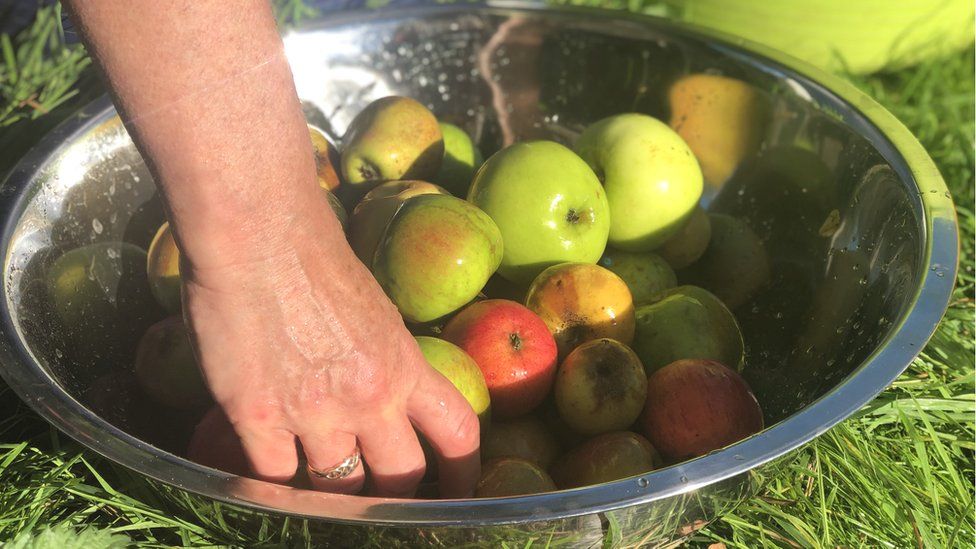
Traditional orchards are vanishing from the landscape, with an area the size of the Isle of Wight lost in a century.
But community orchards are booming, thanks in part to renewed interest in living off the land during Covid-19 lockdowns.
People are clubbing together to plant fruit trees on local green spaces, from village greens to schools.
This new generation of orchards is keeping old traditions alive and reviving Britain’s “lost” apples.
Standing among the apple trees at Swan Barn Farm, Claire Matthes muses on the appeal of these timeless places.
“Being away from the usual hubbub of life, coming somewhere that’s beautiful like this; outdoors, there’s the birds, the animals, the human company as well – there’s some something magical about it,” she says.
Through the Community Orchard Project South East, she has set up more than a dozen community orchards in two years.
And today an army of volunteers is making the most of this year’s bumper crop at an orchard on the edge of the Surrey Hills.
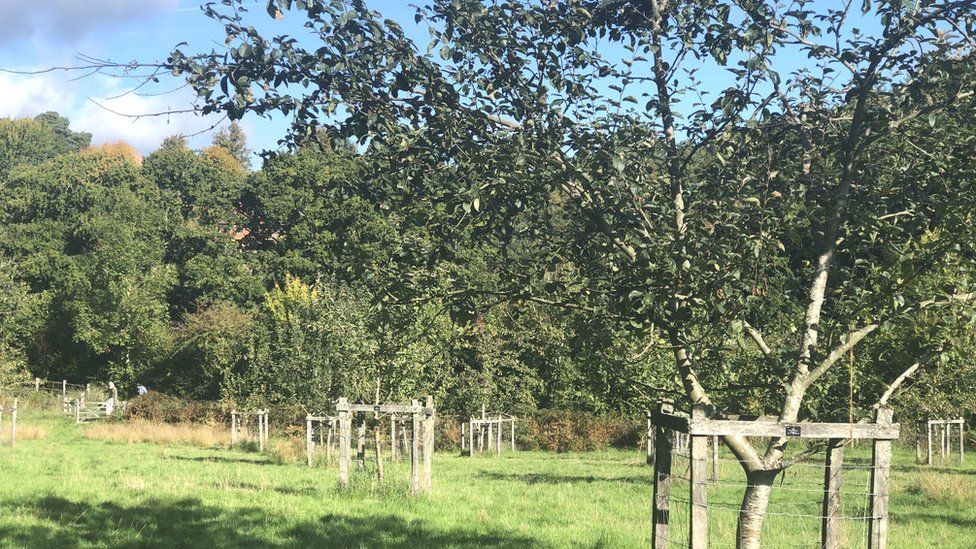
Set on a farm rescued by the National Trust, the site once had just six lonely apple trees, but now there are more than a hundred, bearing dozens of different varieties.
The air carries the smell of apples and the rhythmic whirr of the scratter, a century-old wooden apple press used to make juice.
“What better thing to do than come out here on a lovely day like today helping the environment, helping the community?” says one participant, looking up from chopping apples.
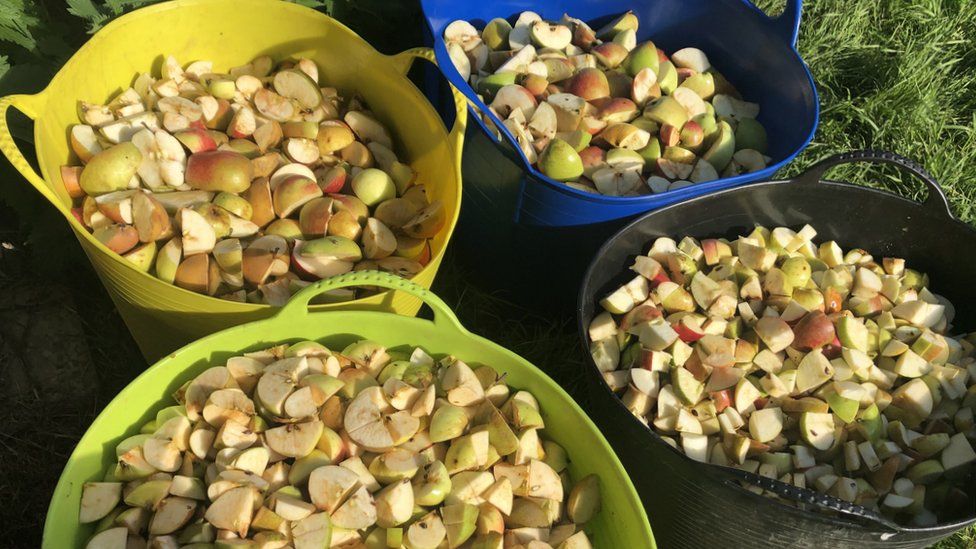
The revival in community orchards is being fuelled by an interest in growing healthy local food, spurred in part by Covid lockdowns. With the cost-of-living crisis biting into people’s food budgets, this year’s bumper crop couldn’t have come at a better time.
Claire Matthes says fruit from community orchards often goes to local meals-on-wheels services or to food banks. “How things are now with the cost of living, I think maybe there’s more of a consciousness about not wanting fruit to go to waste,” she says.
The Royal Horticultural Society (RHS) has seen an increase in gardening groups growing crops since the pandemic, including planting fruit trees and maintaining orchards.
“Many of these groups are keen to reap the community and educational benefits of growing, caring for and harvesting their fruits but also the environmental and wildlife benefits of trees,” says community programme manager, Pak Ling Wan.
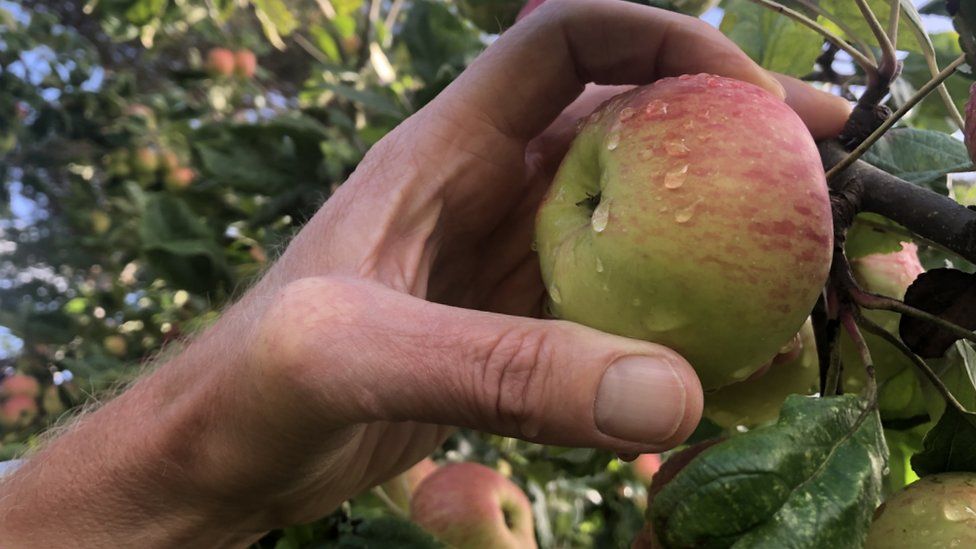
And in many instances, heirloom apples local to the area are being planted, helping to keep communities in touch with their food-growing heritage. The UK has an astonishing 2,000 or more heritage varieties of apple, many intricately connected with local history.
‘Lost’ apples
Take, for instance, the Beauty of Bath, Worcester Pearmain and Stoke Red, from the village of Rodney Stoke, near Cheddar. Then there’s the Bloody Ploughman apple, an heirloom Scottish variety, and the Gennet Moyle, an old Somerset cider apple rescued from extinction.
The vast majority of these heritage apples never make it to the supermarket shelves and their names are disappearing from the lexicon. Jim Arbury of the RHS is on a mission to revive “lost” fruits through his remarkable knowledge of everything apple.
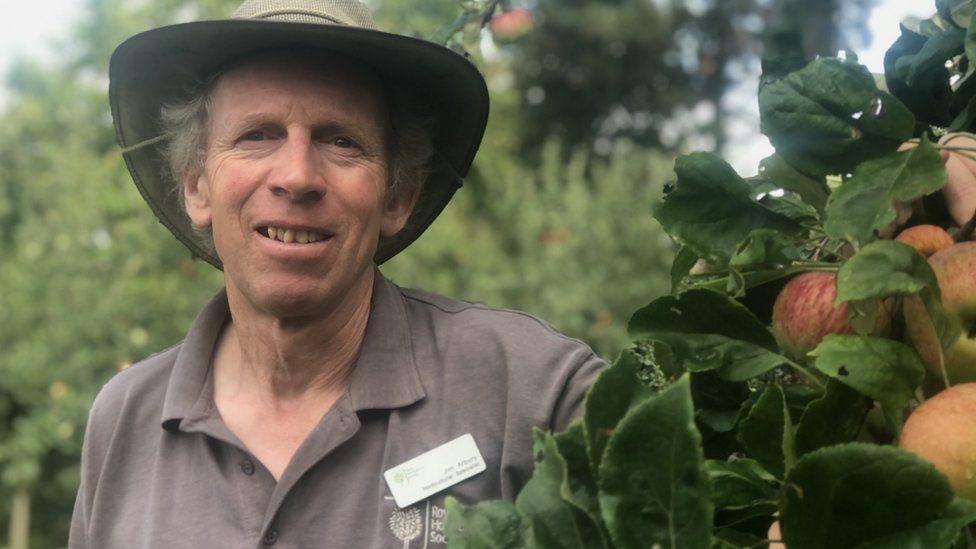
We put this apple detective to the test – and using sight, taste and touch alone, he quickly identified two mystery apples from Swan Barn Farm as Court Pendu Plat, a popular Victorian apple that dates back to Roman times, and a sweet cooking apple, known as Rival.
And there’s good news for apple connoisseurs everywhere, as can be seen from the pictures of apples on social media feeds.
Despite a summer of extreme weather – leading to stunted crops and shrunken vegetables – apples have fared pretty well overall, benefitting from a frost-free spring and long hours of summer sunshine.
“They’re going to taste really good,” says Jim Arbury. “They’re going to be quite firm with good flavour and sweet: plenty of sugar in them.”
All the better, he adds, for making apple juice and cider.








